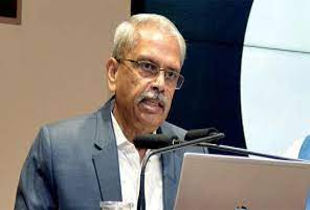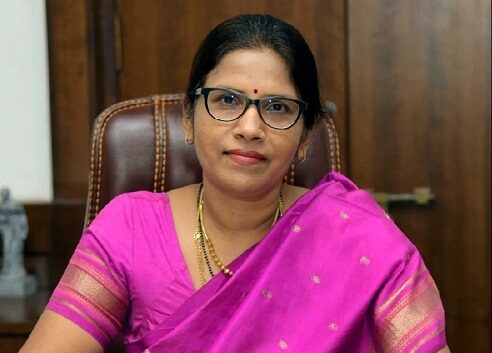Kris Gopalakrishnan and IISc Staff Booked Under SC/ST Atrocities Act

Kris Gopalakrishnan and IISc Staff Booked Under SC/ST Atrocities Act. In a significant development, Infosys co-founder Kris Gopalakrishnan, along with 17 other members of the Indian Institute of Science (IISc), has been booked under the SC/ST Atrocities Act. The case stems from a complaint filed by Professor D.
Sanna Durgappa, a former faculty member at the Centre for Sustainable Technologies at IISc. The complainant alleges that he was unjustly dismissed from his position and subjected to casteist abuse by the accused. The police registered the case on January 27, 2025, following directions from the 71st City Civil and Sessions Court.
Kris Gopalakrishnan and IISc Staff Booked Under SC/ST Atrocities Act
The Complaint: A Serious Allegation
The complainant, Professor D. Sanna Durgappa, belongs to the Bovi community, a scheduled caste in India. He claims that the accused framed him in a false honey trap case, leading to his dismissal from service at IISc. Furthermore, he alleges that he was subjected to caste-based discrimination and abuse during his tenure. The professor approached the court seeking justice, which resulted in the case being officially registered against the accused.
Who is Kris Gopalakrishnan?
Kris Gopalakrishnan is a prominent Indian entrepreneur and the co-founder of Infosys, one of the largest IT companies in the country. Over the years, Gopalakrishnan has been an influential figure in the Indian technology sector. In addition to his business ventures, he serves as a member of the IISc Board of Trustees, which has now come under scrutiny due to the allegations.
The Role of the Indian Institute of Science
The Indian Institute of Science (IISc) is one of India’s premier institutions for research and higher education. The faculty members accused in this case were part of the prestigious institution, which has a longstanding reputation for excellence in science and technology. The fact that such allegations have surfaced against its members has raised concerns about the institution’s internal culture and the behavior of its staff towards individuals from marginalized communities.
The SC/ST Atrocities Act
The SC/ST Atrocities Act is a legal framework designed to protect members of the Scheduled Castes (SC) and Scheduled Tribes (ST) from caste-based discrimination and atrocities. The act criminalizes discrimination, abuse, and violence against individuals from these communities, and offenders can face severe penalties, including imprisonment. The act is a crucial tool for safeguarding the rights and dignity of Dalits and Adivasis in India.
Caste-based Discrimination in Modern India
Caste-based discrimination remains a serious issue in India, despite efforts to address it through legal reforms and social initiatives. The complaint filed by Professor Durgappa highlights the continuing prevalence of casteist abuse in academic and professional spaces. While such cases are often underreported, they underscore the need for more stringent measures to protect individuals from marginalized communities.
The Investigation Process
Following the registration of the case, the police are now responsible for investigating the allegations. The Sadashivanagar police in Bengaluru are leading the investigation under the SC/ST Atrocities Act. The case will involve a thorough examination of the claims made by the complainant, as well as the responses from the accused individuals.
As of now, the police have yet to make any arrests, and the investigation is ongoing. The outcome of this case could have significant implications for the accused, particularly Kris Gopalakrishnan, given his high-profile status in the business and academic communities.
Legal Proceedings and Court Involvement
After Professor Durgappa approached the 71st City Civil and Sessions Court, the court issued a directive to the police to register the case. The involvement of the court in the process underscores the seriousness of the allegations and the legal avenues available to victims of caste-based abuse. The court will likely continue to monitor the case as it progresses through the legal system.
Implications for the Indian Institute of Science
This case raises important questions about the internal culture at IISc and the treatment of faculty members from Scheduled Castes. If the allegations are proven true, it could damage the institution’s reputation and raise concerns about its commitment to diversity and inclusion. IISc may face increased scrutiny from various stakeholders, including government bodies, social organizations, and the public.
Repercussions for Kris Gopalakrishnan
As one of the co-founders of Infosys, Kris Gopalakrishnan is a well-known figure in India and globally. Being named in this case could tarnish his reputation and lead to legal consequences if we substantiate the allegations. His position as a Board of Trustees member at IISc may also come under review, depending on the findings of the investigation.
Importance of Addressing Caste-Based Abuse
The allegations made by Professor Durgappa highlight the ongoing challenges faced by individuals from marginalized communities in India. Despite legal protections, caste-based discrimination persists in various forms, including within prestigious institutions. Addressing such issues requires systemic change and greater accountability at all levels of society, from educational institutions to corporate boards.
Also Read – Dibrugarh to Become Assam Second Capital
Conclusion: What Happens Next?
The case involving Kris Gopalakrishnan and the other members of IISc will likely unfold in the coming months. As the investigation progresses, more details will emerge about the allegations of casteist abuse and unjust dismissal. We must wait to see whether the accused will face legal consequences or whether the case will lead to broader discussions about caste discrimination in India’s institutions.
In the meantime, Professor Durgappa’s brave decision to speak out against discrimination could inspire others to come forward with similar experiences, helping to shed light on the challenges faced by Scheduled Caste and Scheduled Tribe individuals in academic and professional settings. This reminder highlights that caste-based abuse, whether overt or subtle, remains a deeply ingrained issue that we need to address for a more equitable society.
This case could serve as a turning point in the ongoing fight against caste-based discrimination in India’s educational and professional institutions, making it clear that such behavior will not go unchallenged.



